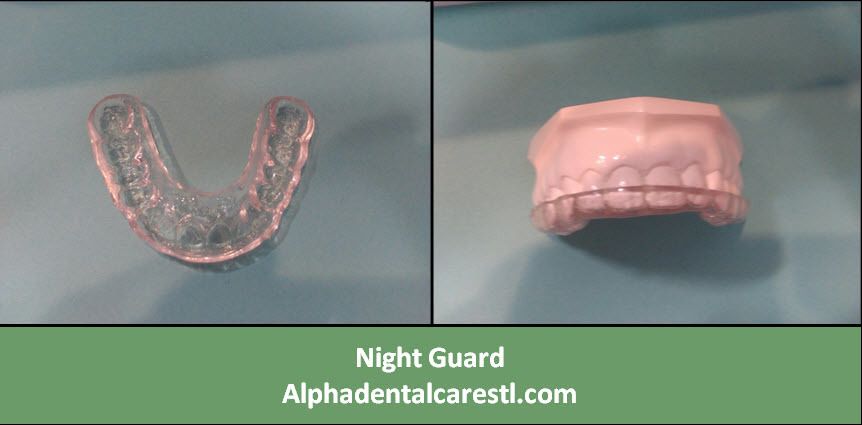Mouth Guards and Treatment for Bruxism & TMJD
Mouth Guards
A mouth guard is an oral appliance that is commonly used for sport activities to protect your teeth. Some sports that children and teens play even require that your child or teen wear a mouth guard during practice and games. Many sports injuries involve the mouth and teeth which is why it is very important to wear a mouth guard during contact sports. Some mouth guards can be purchased in your local sporting goods store. The mouth guards that are bought in a store are usually ones that you have to put in boiling water and then place in the mouth for it to form around your teeth. The mouth guards bought in a store can be inexpensive but they can also cause some problems. When a mouth guard does not fit properly, it can actually cause more damage than help protect the teeth. Your dentist can make a mouth guard for you that will properly fit your teeth and protect them. The dentist will have an impression taken of your teeth and then with the model of your teeth make a mouth guard to custom fit you. This mouth guard is made either in the dentist office by the dental assistants or in a dental laboratory. The cost of a mouth guard can be less expensive than the cost of fixing your damaged teeth due to not wearing a mouth guard or not wearing a proper mouth guard.
Bruxism
Bruxism is the abnormal condition of constant grinding or clenching of a person’s teeth. An average person’s teeth touch together approximately 4 minutes a day usually while chewing food. Someone with Bruxism’s teeth will touch together approximately 6-8 hours a day. The most common time that a person with Bruxism will clench or grind their teeth is at night time. If someone with Bruxism does not receive treatment it can result in extreme wearing of the teeth that could even lead to the loss of teeth. With no treatment a person might develop pain and/or inadequate chewing. The most common way to treat bruxism is by the simple use of a night guard
at night. The night guard is made by taking an impression of the patient’s teeth. Then the night guard is made by the dental assistants or by a dental laboratory to custom fit the patient. Night guards can also be bought in store but like mouth guards bought in stores can fit improperly and fall out in the middle of the night. In some cases of bruxism the dentist may need to adjust the biting surfaces of your teeth to treat your bruxism. Extreme cases of bruxism can lead a necessity for full mouth reconstruction with crowns and bridges.

TMJD
TMJD stands for Temporomandibular Joint Disorder. The Temporomandibular Joint better known as your TMJ is located on both sides of your jaw bone near your ears and is what allows you to open and close your mouth. There are a lot of causes of TMJD:
- Poor alignment of teeth due to missing or damaged teeth
- Overuse of the TMJ muscle from chewing, clenching, biting, or grinding
- Traumatic damage to the TMJ
- Arthritis in the TMJ
- Infection in the mouth that spreads to the TMJ
- Cancer or Tumor in the TMJ
There are a few main symptoms when it comes to TMJD. The first symptom is pain in the face, neck and jaw muscles depending on how severe your case of TMJD is depends on how much pain you would have. Another symptom of TMJD is the ringing of your ears which can also cause pain in your ears. One of the most common symptoms associated with TMJD is the clicking or popping of your jaw when you open and close your mouth this can also sometimes be painful and can make it difficult to chew. In severe cases of TMJD a person may have issues with the jaw locking, if your jaw locks up you may need to see a doctor right away. It is important to treat TMJD because it can be very painful. The main way to treat TMJD is by the use of an appliance called a dental splint. The first step to making a dental splint is for your dentist to take an impression to send to a dental laboratory where the dental splint is made. The dentist will then adjust the splint as needed and explain to you how to use and clean the splint. The splint helps to relieve pressure off of your TMJ. In severe case of TMJD a person may need to see a specialist and in some cases may need to have surgery to treat their TMJD.
